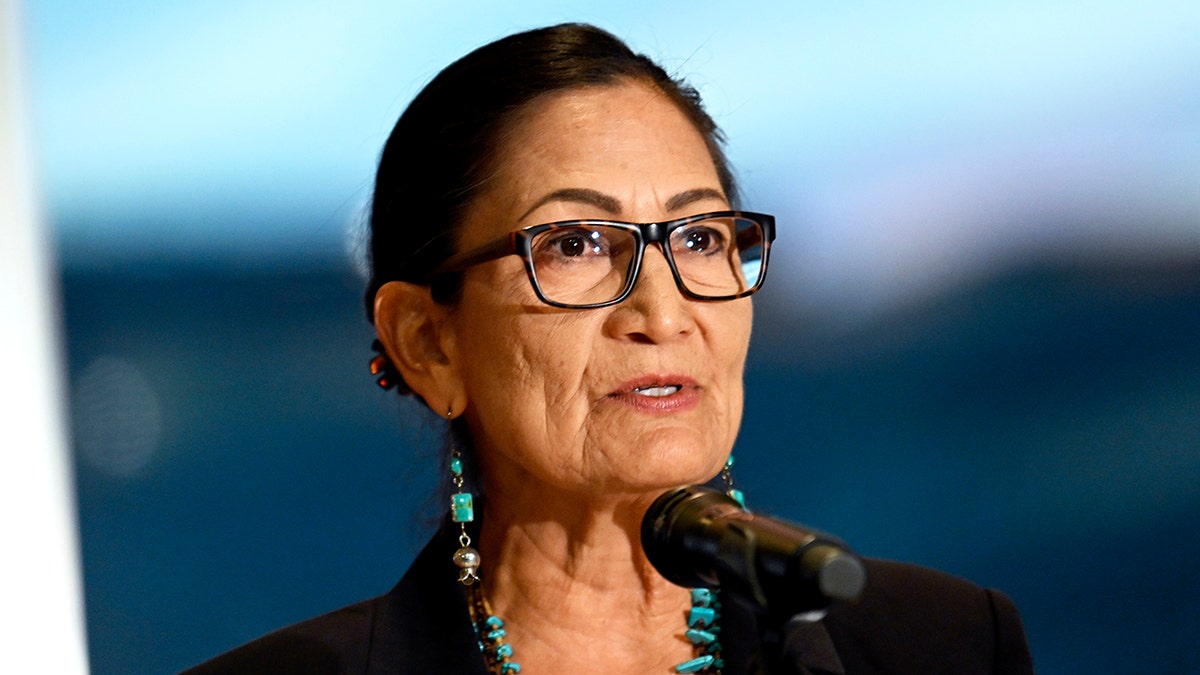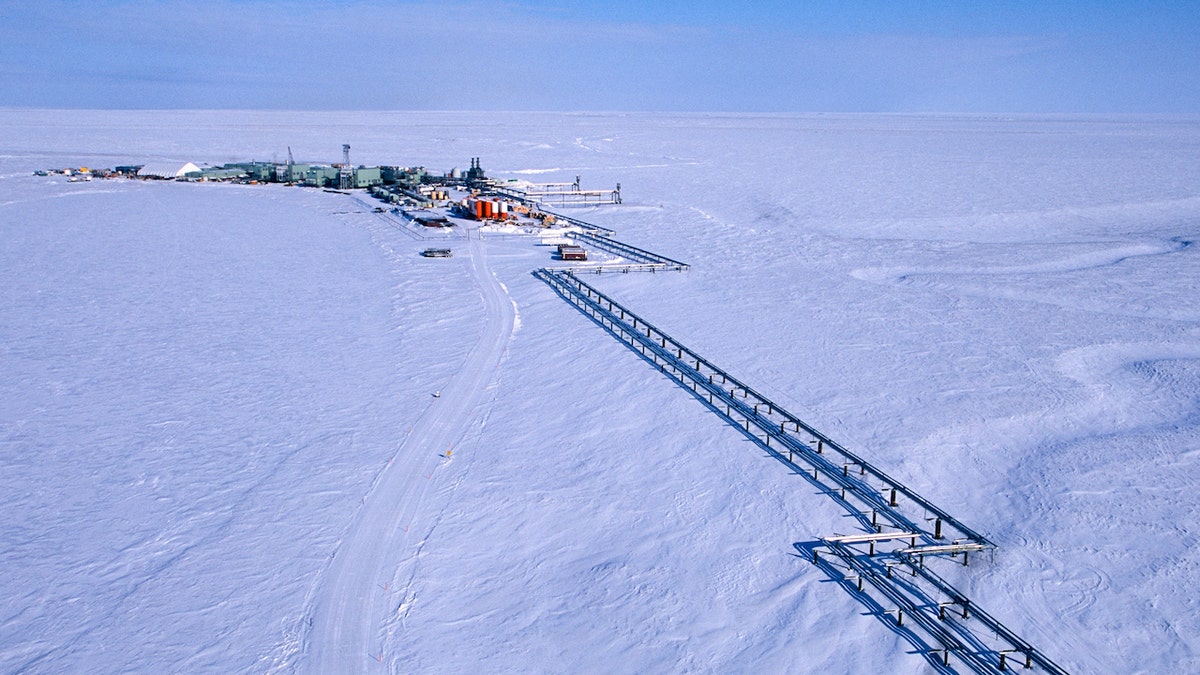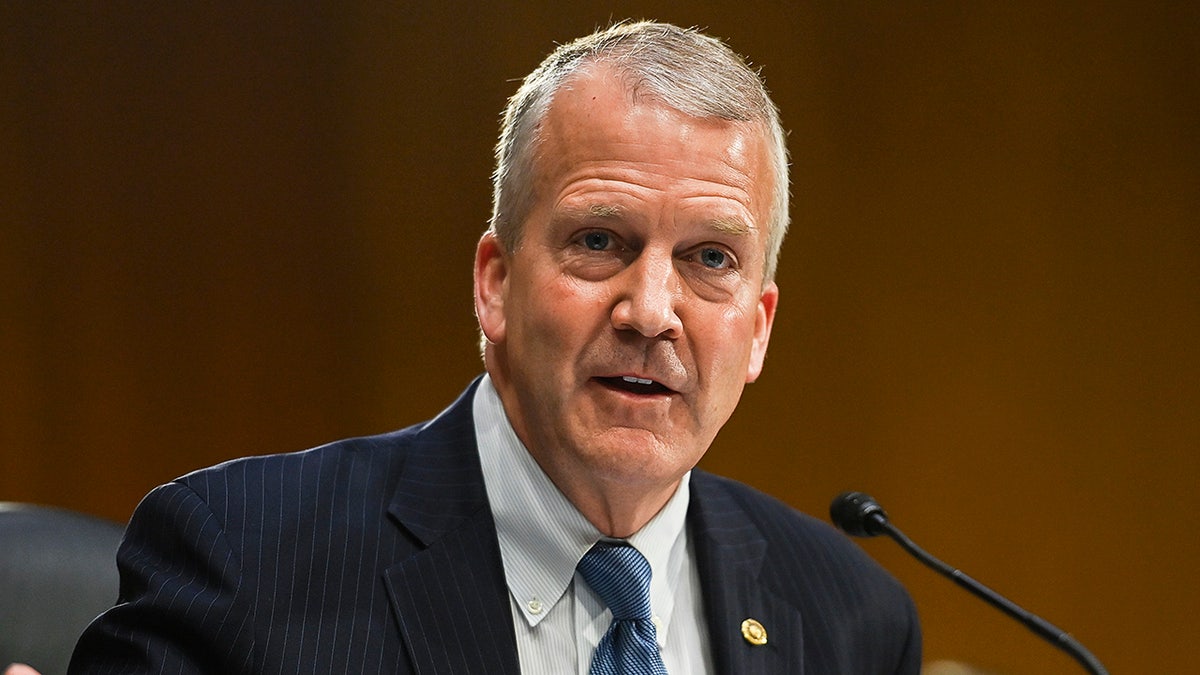Biden's war on energy makes America more vulnerable on every front: Moore
Fox News contributor Robert Wolf and FreedomWorks economist Steve Moore react to JPMorgan CEO Jamie Dimon criticizing Biden's plan to stop oil and gas projects on "America Reports."
The Biden administration is planning to block oil and gas drilling across millions of acres in an Alaskan reserve, which Congress specifically set aside for resource development.
The Department of Interior (DOI) is expected to finalize regulations on Friday, just days ahead of Earth Day. These regulations would effectively lock up more than 13 million acres of public land within the National Petroleum Reserve (NPR-A), sources familiar with the agency's timing told Fox News Digital. The regulations represent one of the Biden administration's most aggressive actions pushed under its climate and conservation agenda.
According to the DOI, the regulations as proposed would create an outright prohibition on any new leasing across 10.6 million acres of the area, equivalent to about 40% of the entire NPR-A. They would additionally require DOI subagency the Bureau of Land Management to review whether to expand protected areas or create new protected areas in the NPR-A at least every five years.
"With climate change warming the Arctic more than twice as fast as the rest of the planet, we must do everything within our control to meet the highest standards of care to protect this fragile ecosystem," Interior Secretary Deb Haaland previously said. "President Biden is delivering on the most ambitious climate and conservation agenda in history."
'STOP APPEASING DICTATORS': GOP SENATORS DEMAND BIDEN IMPOSE OIL SANCTIONS ON VENEZUELA

Interior Secretary Deb Haaland (Shannon Finney/Getty Images/File)
Under the administration's actions curbing development in the NPR-A, future oil and gas leasing and industrial development would be strictly limited in the vast Teshekpuk Lake, Utukok Uplands, Colville River, Kasegaluk Lagoon and Peard Bay – "special areas" known for their rich wildlife populations on Alaska's North Slope. DOI said closing the land off from resource development would help protect various wildlife species, including caribou.
The regulations, initially proposed in September, have since garnered more than 10,000 public comment letters, reflecting both support for and opposition to the rules.
And according to the Office of Management and Budget filings reviewed by Fox News Digital, DOI officials have met with several stakeholders.
HALF OF US STATES REVOLT AGAINST EPA CRACKDOWN ON GAS CARS WITH MAJOR LEGAL CHALLENGE
While the regulations have received support from Democrats and environmental groups, they have been blasted by the state of Alaska, Alaska's bipartisan congressional delegation, local leaders, Indigenous groups, energy industry associations and Republican lawmakers.

This view shows oil development facilities in Prudhoe Bay on the North Slope of Alaska. (Simon Bruty/Anychance/Getty Images/File)
"Joe Biden is doing everything he can to attack American energy," Sen. John Barrasso, R-Wyo., the ranking member of the Senate Energy and Natural Resources Committee, said during a press conference late Thursday. "They're going to prohibit oil production in, of all places, the National Petroleum Reserve in Alaska. That's like saying no more picnics in Yellowstone National Park."
Sen. Dan Sullivan, R-Alaska, who organized the press conference, added in an interview with FOX Business on Thursday that locking up NPR-A lands would outsource oil and gas production to "regimes that hate us" like Russia, Venezuela and Iran.
BIDEN ENERGY SECRETARY REVEALS STOCK OWNERSHIP OF EV LOBBY GROUP FOUNDING COMPANY
In February, Sullivan, Sen. Lisa Murkowski, R-Alaska, and Rep. Mary Peltola, D-Alaska, sent a letter to the White House, urging it to consider the perspectives of Native Alaskans, many of whom support oil and gas development in the NPR-A.

Sen. Dan Sullivan, R-Alaska, excoriated the Biden administration for its plans to shut down much of the NPR-A. (Brandon Bell-Pool/Getty Images/File)
"While we obviously recognize the impacts of climate change on the Alaskan environment, the policy objectives of this administration do not negate congressional direction for the management of the Petroleum Reserve, nor do those objectives nullify the obligation to hear and consider the perspectives of the North Slope people that will be negatively impacted by this proposed rule," several Native Alaskan leaders wrote in a comment letter to DOI.
CLICK HERE TO GET THE FOX NEWS APP
Overall, NPR-A spans 23 million acres of public land in northern Alaska. It was first established as a petroleum reserve for the U.S. Navy in 1923 before it was transferred in 1976 to DOI under the Naval Petroleum Reserves Production Act.
DOI didn't respond to a request for comment.


